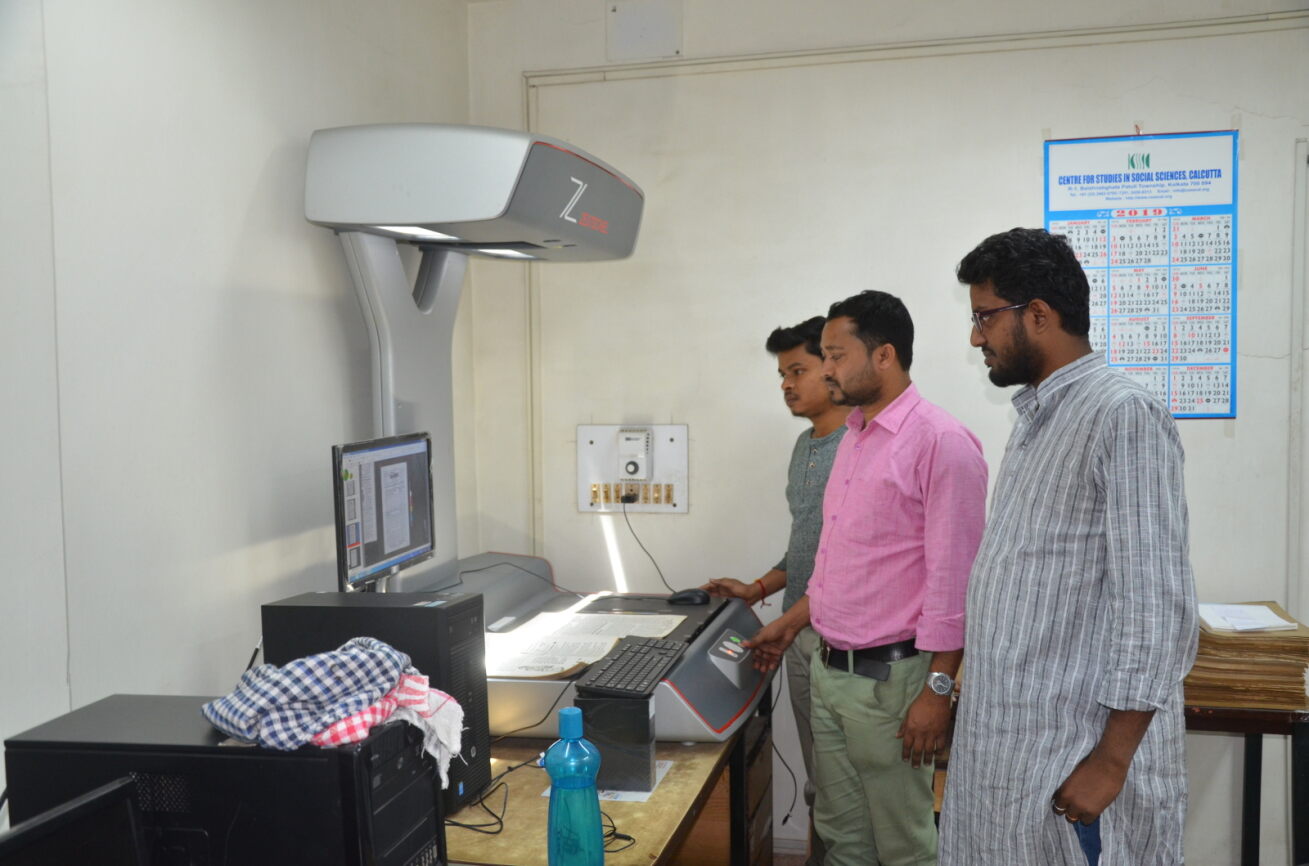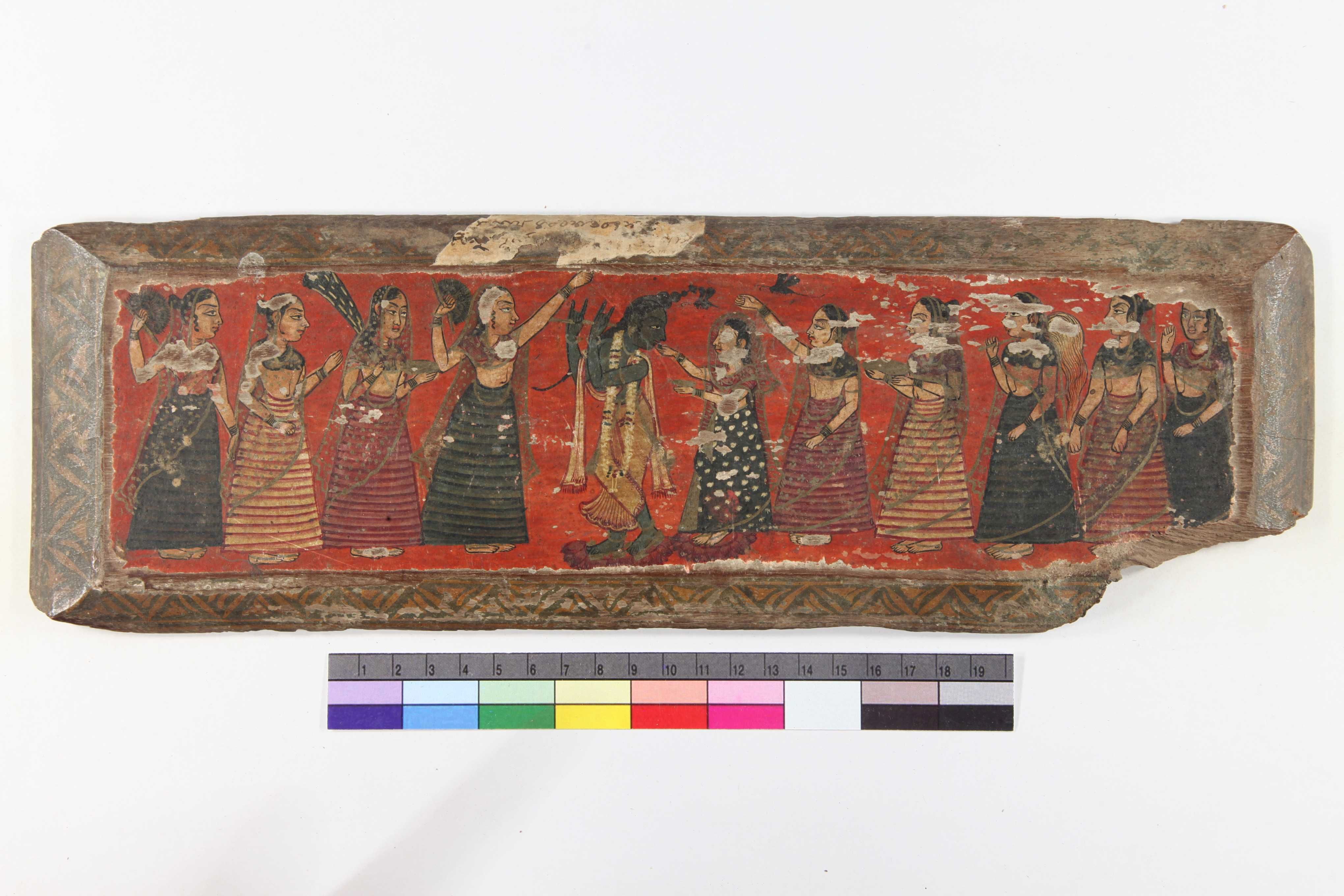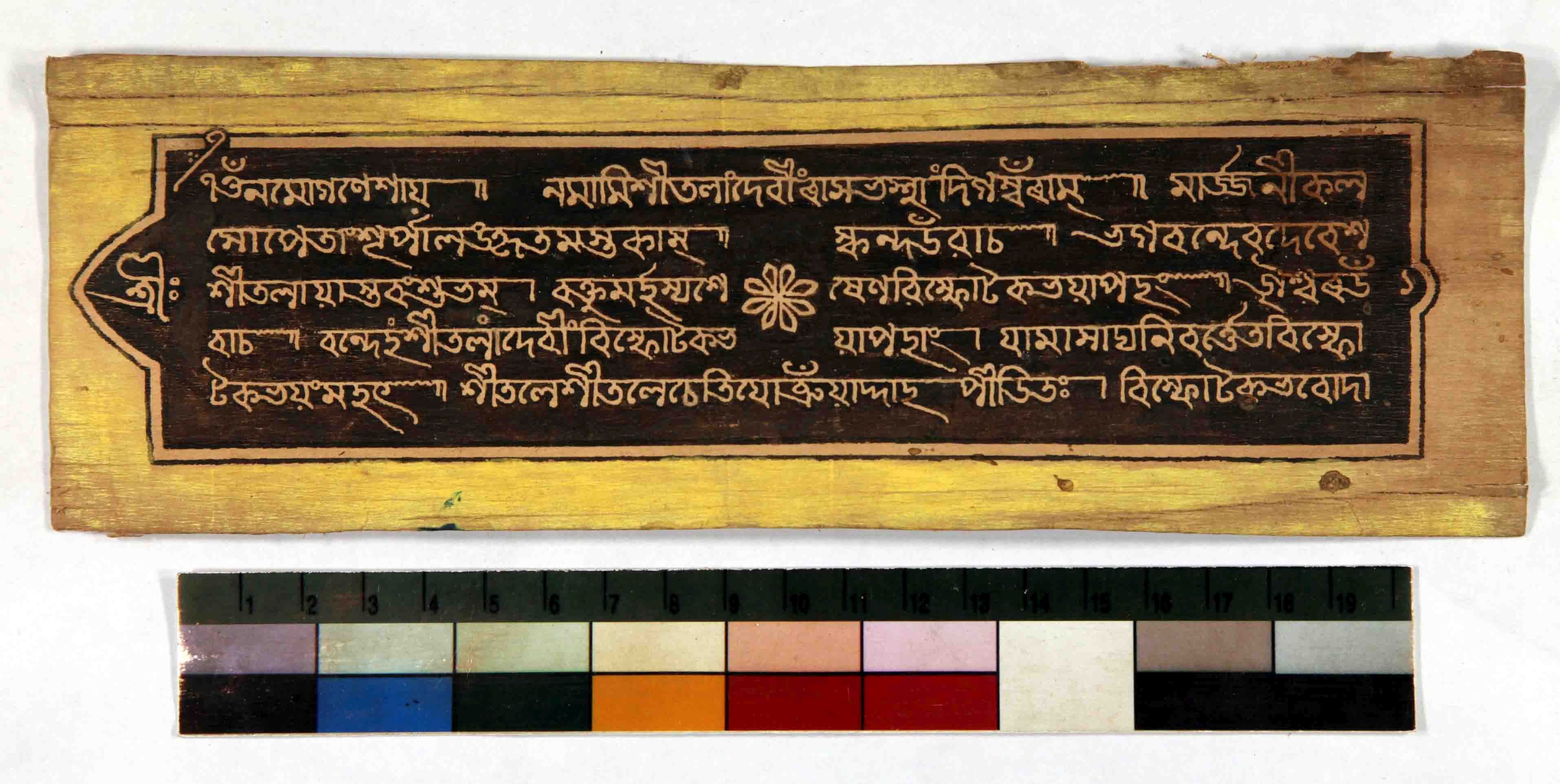Archive
The Centre for Studies in Social Sciences, Calcutta Archive

The CSSSC Archive is a pioneer of open access archiving in South Asia. It has in the past thirty years copied and digitally preserved archival material from numerous public and private collections in India, and has made available about seventy-five percent of the digital output on various open access platforms. Even though the seed collection of the Archive consists of the periodicals and photographs from the collection of the late Professor Hitesranjan Sanyal, it is through a collaborative project under the DANIDA program of the Ministry of Foreign Affairs, Government of Denmark that the Archive first started acquiring the institutional form that it has taken today. Set up initially in 1993 with a grant from Enhanced Research Capacity (EnReCa) project of the DANIDA program of the Ministry of Foreign Affairs, Government of Denmark, the CSSSC Archive was subsequently funded by various other bodies, such as, Japan Foundation – Asia Centre, Ford Foundation, SEPHIS (South-South Exchange Programme for Research on the History of Development), India Foundation for the Arts, Indian Council of Social Science Research, Center for Research Libraries, Chicago, US National Endowment for Humanities through the University of Chicago and the Endangered Archives Programme of the British Library (supported by Arcadia), the Modern Endangered Archives Programme at the University of California, Los Angeles (supported again by Arcadia), the University of Pennsylvania Libraries, and the Columbia University Libraries (with support from Arcadia). During the first phase from 1993 – 1998, the Archive copied 118 Bengali periodicals of various frequencies and microfilmed nearly 1,000,000 pages, mainly from the Bangiya Sahitya Parishat, Konnagar Public Library, Moheary Public Library (Howrah), Kolkata Little Magazine Library-o-Gabeshana Kendra. The Archive also copied from the collection of the Shilpashram, Purulia the issues of their periodical, Mukti. Syed Abdul Rahman Ferdousi of Khoshbaspur had gifted several issues of rare periodicals from his personal collection to the late Professor Hitesranjan Sanyal which too were digitized. Some rare books and periodicals were copied from the private collections of Nripendrakumar Basu, Uttara Chakrabarti, and Amit Ranjan Basu.

During subsequent phases the archives gradually developed a combined pool of textual and visual materials mostly in the digital format and at present the CSSSC Archive is home to digital copies of over 15000 issues of Bangla periodicals, 300 volumes of Assamese periodicals, 27000 issues of Bangla newspapers, 5000 issues of English newspapers, 6000 Bangla books, 300 Hindi books and chapbooks, 300 items in Urdu, 30 items in Nepali, 30 items in Bhojpuri, 180 Assamese books, 8000 manuscripts in Sanskrit, Bangla, and Farsi, 35,000 bromide prints, copy negatives and color photographs, and 20,000 popular prints, paintings, oleographs, lithographs, commercial art items such Bangla advertisements and cartoons. Apart from the digital material, the archive holds a small but rich collection of ephemera and papers - including the private papers of the historians and social scientists like RC Majumdar, Barun De, Hitesranjan Sanyal, Arun Dasgupta, Ashin Dasgupta, Anjan Ghosh and Gautam Bhadra, correspondence of painter Nandalal Bose, and private papers and correspondences of Sivanath Sastri, Bijaychandra Majumder, Priyanath Bhattacharya, Madhusudan Rao, Hemlata Sarkar and their extended families from the Sevati Mitra collection, an album of Indubala Debi, a few genealogical charts from Bani-mandir, papers of Tapas Sen, and several pata paintings. The Archive has copied photographs, specimens of commercial art, and paintings from the collections of Indranath Majumdar, Amitabha (Siddhartha) Ghosh, Radhaprasad Gupta, Ranen Ayan Dutt, Parimal Ghosh, Himanish Goswami, Nandalal Kanoria, P.C. Kejriwal (Chitrakoot Art Gallery), Gautam Bhadra, Barada Gupta, Prabir Mukhopadhyay, Debaleena Majumdar, Sanjeet Chowdhury, and others. Even though financial limitations and copyright conventions have prevented the Archive from displaying the visual material extensively online, they have been used in the virtual reality museum that the Ministry of Culture, GOI and the Archaeological Survey of India have set up in Metcalfe Hall, Kolkata. As part of our outreach activities, the Archive has organized exhibitions around the visual material in Kolkata and Delhi. One can read more on the visual material in our collection at https://jbmrc.cssscal.org/archives/, and https://jbmrc.cssscal.org/facilities/jbmrc-archives/ During the period 2013 to 2021, the main activities of the Archive have been organized around the Endangered Archives Programme at the British Library, London. Other activities included the digitization and cataloguing of the papers of the Kolkata Improvement Trust (formerly Calcutta Improvement Trust), as well as the private papers and collections of some eminent Bengali practitioners of classical Indian music (including Birendra Kishore Roychowdhury).

Under the several grants from the Endangered Archives Project, the Archive has digitized runs of the famous Calcutta-based dailies Amritabazar Patrika and Jugantar, and has digitized the collections of the Chandannagar Pustakagar, Bali Sadharan Granthagar, Mudiali Library (Garden Reach), Akshay Granthagar (Santipur), Santipur Puran Parishad, Shishirbani Library (Guptipara), Nihar Press (Kanthi/Contai), Rajnarayan Basu Smriti Pathagar, Vidyasagar Memorial Hall Rural Library (Birsingha), Brahmo Samaj Library in Santipur, collection of late Lalit Mohan Sen (Santipur), Sadharan Brahmo Samaj Library (Kolkata), Bauddhadharmankur Sabha, the collection of Saratchandra Pandit, better known as Dadathakur (Raghunathganj), Krittibas Library (Phulia), Bankim Bhavan Gabeshana Kendra (Naihati), Jatindramohan Sangrahashala of the National Council of Education, Bengal, Nabadwip Sadharan Pathagar, Krishnanagar Public Library, Birbhum District Library (Suri), Birbhum Sahitya Parishad, Vidyasagar College (Suri), and from the respective collections of Rajarshi Ghose and Mukund Madhav Jha. As a signal contribution to the field of urban studies, the Archive has digitized the entire proceedings of the Santipur Municipality and selected papers of the Kolkata Improvement Trust. Over the past decade, our Archive has pioneered in eastern India the use of sophisticated digital technology to copy fragile manuscripts, books, and periodicals without causing any significant damage to the original material. As outlined above, we have successfully digitized the collections preserved in various remote locations of West Bengal without displacing the originals. In 2014, the Digital Empowerment Foundation acknowledged the Archive’s contributions to the making an information rich society in South Asia and awarded it the Manthan Award. In 2015, the Archive was nominated for the World Summit for Information Society Award 2015. We are committed to more intensive and democratic use of digital tools, and to work towards the establishment of a more information rich society in South Asia. We are dedicated to preservation of important historical materials which are invaluable sources in understanding of the trajectories social, intellectual, economic, and political development in the region. The archive is committed to the principles of open-access archiving as envisioned under the Creative Commons charter. Thus, about seventy-five percent of the textual materials held in the archive have been also uploaded on various open-access servers such as the EAP repository, National Digital Library of India (Government of India), JSTOR-Open Access, the FID4SA repository, and the MEAP repository.

